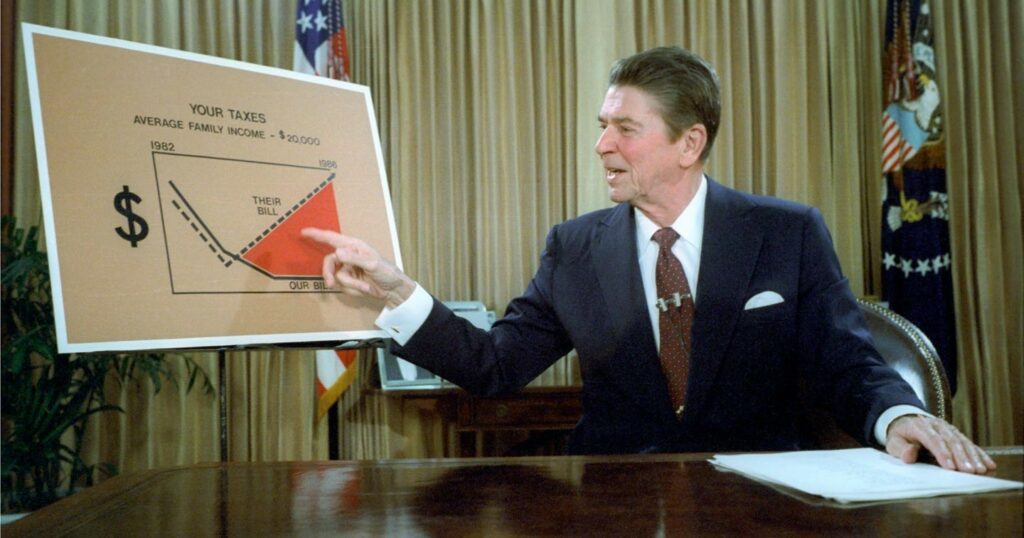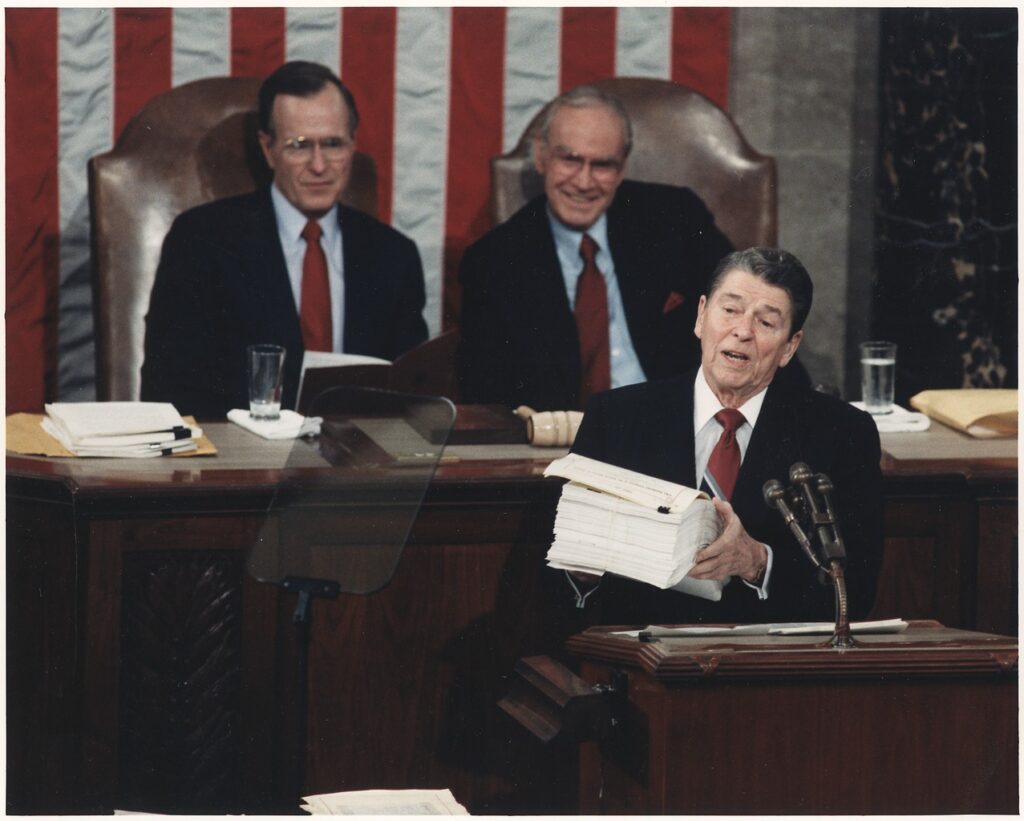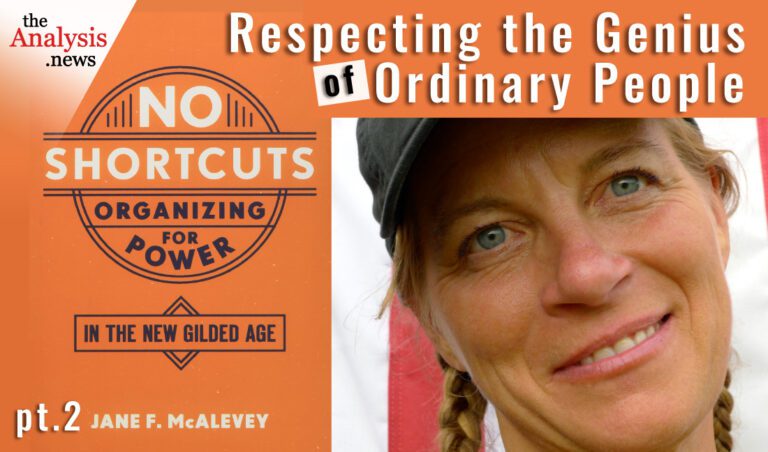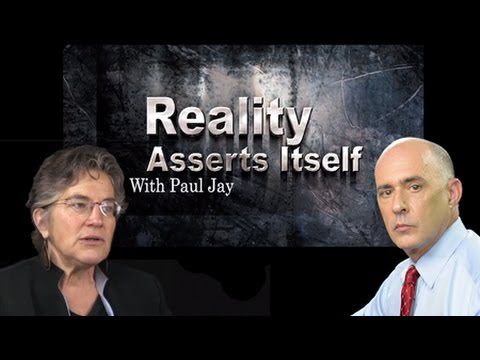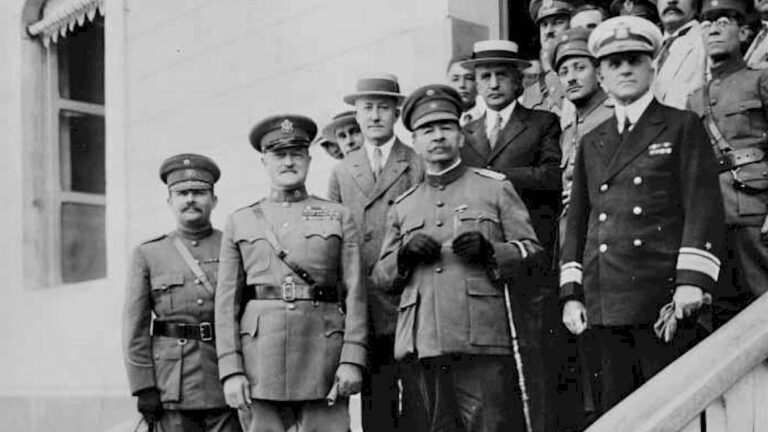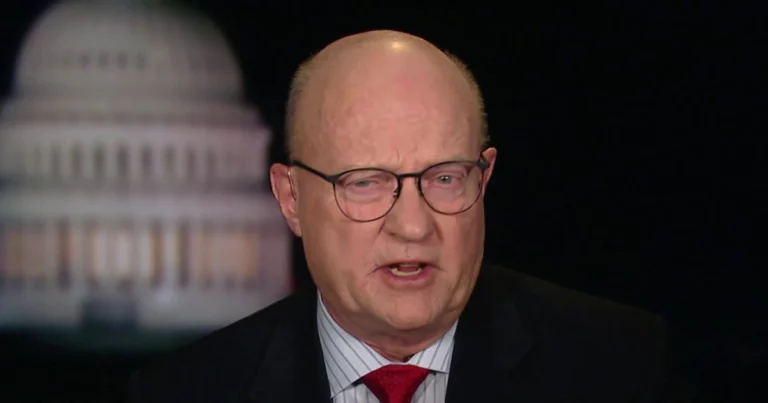This is an episode of Reality Asserts Itself, produced on June 13, 2014. Mr. Johnson says TARP was an abomination; finance controls the government and uses it to cover its losses.
PAUL JAY, SENIOR EDITOR, TRNN: Welcome to The Real News Network. I’m Paul Jay in Baltimore. And welcome back to Reality Asserts Itself with our series of interviews with Rob Johnson, who joins us again in the studio.
Thanks for joining us again, Rob.
ROB JOHNSON, EXEC. DIRECTOR, INSTITUTE FOR NEW ECONOMIC THINKING: My pleasure.
JAY: So, one more time, Rob is president of the Institute for New Economic Thinking. He’s also a senior fellow and director of the Global Finance Project for the Franklin and Eleanor Roosevelt Institute in New York. Previously, Robert was a managing director at Soros Fund Management, where he managed a global currency bond and equity portfolio. And he was, as I’ve said, one of the men who broke the Bank of England.
Thanks again.
So we’re going to pick up Rob’s narrative. After the Bank of England, you get very involved in Asia.
JOHNSON: Yes.
JAY: And there’s something sort of similar happens with Malaysia. What happened there?
JOHNSON: Well, there’s–it culminates after I’ve left the Soros firm in the Asian crisis and the devaluation of the Malaysian ringgit and Indonesian rupiah, Thai baht, and other currencies. But the prime minister, Mahathir, was very, very critical of Mr. Soros in public as a result of those violent movies within Asia.
JAY: It was a similar ploy of–.
JOHNSON: Yeah, I don’t know that the Soros firm–I wasn’t there at the time, and I’m not sure that they were as involved as Mahathir thought they were. But nonetheless, George became an archetype of the hedge fund speculator. So when this happened, certainly there were many hedge funds involved in the pressures on the Malaysian ringgit, and George became the what you might call symbol of that type of activity.
JAY: It’s, as you say, and I take your point, if he hadn’t done it, somebody else would. It is another stage in the power of finance–
JOHNSON: Yes.
JAY: –that you can start to kick around sovereign governments, which we’re now seeing especially, you know, in Europe, but we’ve seen in many places, all through Latin America during the ’80s–.
JOHNSON: Well, and what you saw after the Asian crisis was that many of the Asian governments, like Hong Kong, Taiwan, China, and others, built enormous foreign exchange reserves. And now the scale, say–a firm like the Soros Fund has, say, $20 billion, $23 billion under management, and the Chinese government’s foreign exchange reserve is $2 trillion. So at some level they responded on their side by building these war chests, if you will, to be able to defend their currencies.
JAY: Something the size of China can do it, but the smaller countries–.
JOHNSON: Someplace like Hong Kong might have $300 billion, which is 15 times the scale of Soros. So the world has changed quite a bit.
I actually think that the biggest danger now in the relationship between the financial sector and government is that the financial sector, through lobbying, can use the governments to what you might call underwrite their losses. You know, heads they win, tails society–they socialize the losses.
JAY: Which is what we’ve seen here.
JOHNSON: And that process is somewhat even more, how you say, toxic, because at some level you’re what you might call turbocharging the winners.
JAY: And making speculation unlosable.
JOHNSON: Yeah, exactly. Exactly.
JAY: Okay. Just very quickly, biographically, you make a lot of money out of this time at Soros, decide to take some time off. (I know all this because I’ve asked Rob off-camera, but I’m going to do it quickly.) And you finally get to do your dream, which is go sailing.
JOHNSON: Yes. That’s–I’ve been a sailor since I was a young boy, and I wanted to–I had two small children, and I wanted to be able to explore parts of the planet that you don’t really get to through airports, places like the coast of Siberia or Antarctica and what have you. And I had often thought of being a naval architect or even an oceanographer. And the idea of my children being able to become that familiar with the dimensions of nature was something I aspired to do. And because I had young children and my two parents were quite vital, linking the three generations in that form is something I wanted to do to create cohesion within my family and joy.
JAY: You go back into finance for a little bit, and then you come back, and you switch gears. You go into music and film.
JOHNSON: Well, music is historically very close to my family, and through the music experience, I got involved with a blues business and essentially a blues film that PBS was putting together under the leadership of Martin Scorsese. And the operating producer and director, Alex Gibney, became a friend.
And then we started to work together and ended up creating a film that was what you might call political philanthropy. We were appalled by torture, thought that–.
JAY: This is the film Taxi to the Dark Side.
JOHNSON: So Taxi to the Dark Side, which won the Oscar in feature documentary. And we worked on that together.
JAY: You were an executive producer on that?
JOHNSON: Yes.
JAY: This period of music and film, away from, you know, the involvement in finance, does it change any more about the way you look at the world?
JOHNSON: I think it’s a reintegration of how I look at the world with my life. When I was a child, I was very involved in the music scene. My parents were very involved in music. My father played a lot of jazz and jazz piano and trumpet. My mother was a choral singer. There was this organic sensibility about the popular music of the time in relation to Vietnam and other tensions and racial tensions, the civil rights movement. So I’ve always felt that the arts are like the lightning bolt of truthtelling that surrounds or are inspired by the social conditions. And to get back into that realm, which was close to what I call where the love was in my family, was interesting. But I see it as an organic whole, including literature and other things, which was–it was not just music. But I see the arts as an organic whole in its relationship to what’s happening in society.
JAY: Then when does George Soros get you to help create INET, Institute for New Economic Thinking, which is what your passion is now?
JOHNSON: In the aftermath of the TARP legislation, which looked to me like a social abomination–this was bailouts with no restrictions. As Joe Stiglitz calls it, that’s when the polluters got paid. And we could see that this would create a great deal of stress, disharmony. Things like the Tea Party, Occupy Wall Street were legitimately angry that the polluters didn’t pay.
And in that aftermath, George Soros, who’d lived through Austrian and German banking crisis in the 1930s, the dissolution of trust in governance, he and I started to talk. I had been in Washington volunteering with the House and Senate banking committees during the time of the TARP legislation. I was quite distressed. A couple of other friends were quite distressed. We felt like this was a time to challenge mechanistic orthodox economics, this was a time to try to build a direction forward, because society would be enraged in light of these bailouts.
JAY: I saw an interview with George Soros about the founding of INET. He said, we need to rethink the fundamentals of how the economy works.
JOHNSON: Yes.
JAY: So in the next segment of our interview, we’re going to talk about that work and INET’s work to rethink the fundamentals. So please join us for the next segment of our interview with Rob Johnson on Reality Asserts Itself on The Real News Network.
Never miss another story
Subscribe to theAnalysis.news – Newsletter
“Robert A. Johnson is the Executive Director of the Institute for New Economic Thinking and regularly contributes to NewDeal 2.0 with his “FinanceSeer Column.” He also formerly traded currency on Wall Street under George Soros.”






